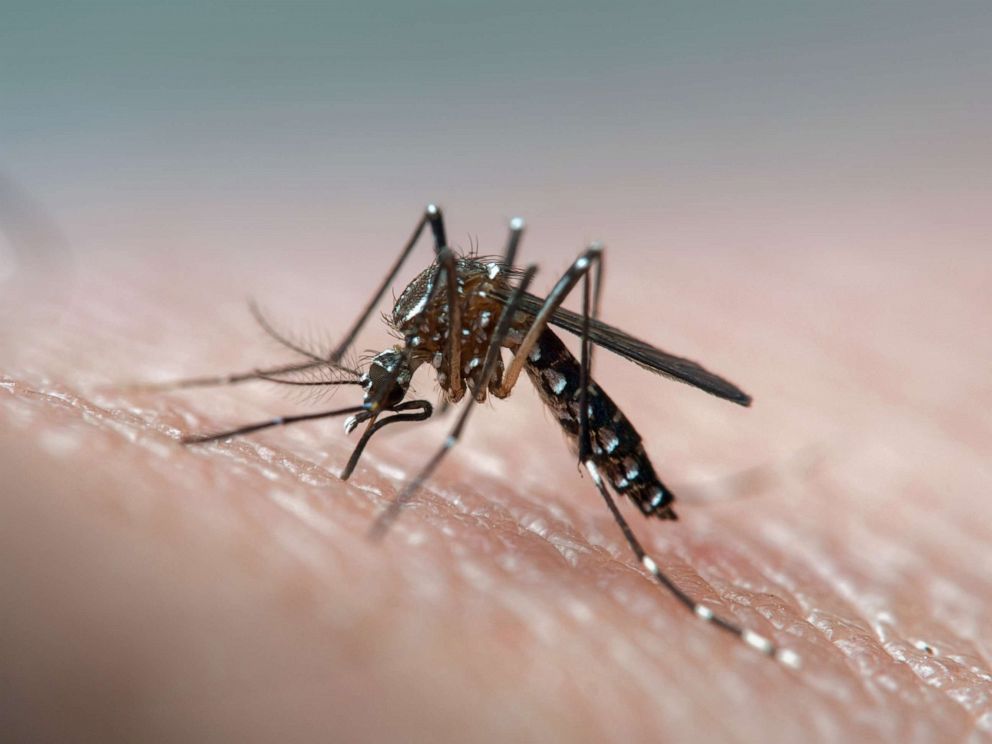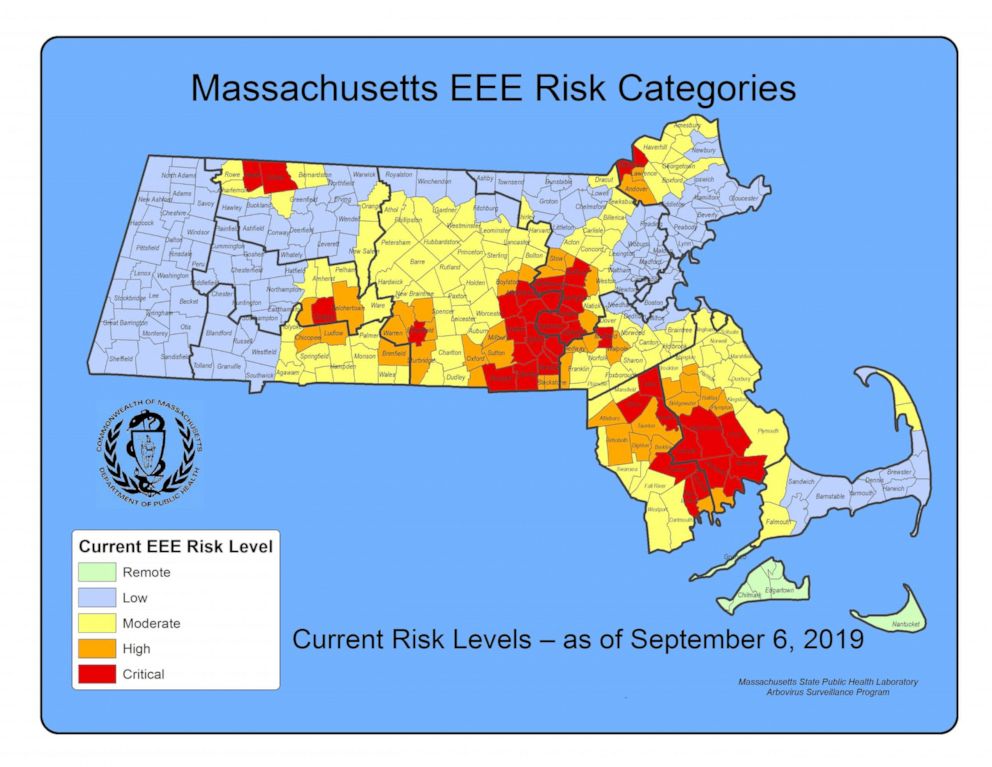2 new cases of EEE include 5-year-old girl, woman
EEE is a rare but potentially deadly mosquito-transmitted virus.
Two new cases of the rare but potentially deadly virus infection Eastern Equine Encephalitis (EEE) have been detected, according to the lab results from the Massachusetts Department of Public Health.
A 5-year-old girl from southwestern Middlesex County and a woman in her 60s from eastern Middlesex County have been diagnosed with EEE, officials said Friday.
The girl is being treated at an area hospital in critical condition, officials said.
EEE is a mosquito-transmitted virus that can affect humans, horses and birds, according to the Centers for Disease Control and Prevention.

The disease occurs sporadically in Massachusetts, with seven people being infected so far this year, according to the state’s department of public health.
After the two new cases were reported, the risk level in towns Framingham, Marlborough, Northborough, and Sudbury was raised to critical. The 5-year-old infected was from Sudbury, officials said.
The risk level in Berlin, Boylston, Hudson, Maynard, Stow, and Wayland was raised to high.
A total of 36 communities in the state are now at critical risk, 42 at high risk and 115 at moderate risk for EEE, according to officials.
Dr. Monica Bharel, the public health commissioner, said it’s not unusual to see human EEE cases in September.
“This is why we continue to urge the public to take seriously the threat that mosquitoes can pose and to take steps to avoid being bitten,” Bharel said in a statement.

Health officials urged residents in Massachusetts to use mosquito repellent. Those in high and critical risk communities should consider staying indoors during the dusk to dawn hours to reduce their chance of being exposed to the bugs.
The Massachusetts Department of Agricultural Resources conducted aerial spraying for mosquitoes in some counties last month to help reduce the risk. The spraying has since been stopped because evening temperatures are too low to allow for effective aerial application, officials said.
EEE has been found in 400 mosquito samples this year, many of which are species that are capable of spreading the disease to humans.
The most recent outbreak in Massachusetts occurred from 2004 to 2006 and 2010 to 2012, with 22 human cases of EEE during both time periods.




